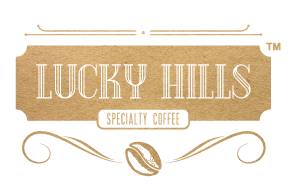Customer behavior, in continuous transformation, is a reality that is directly reflected in the foodservice segment. The customer experience, in turn, becomes an intrinsic element, exerting significant influence on purchasing decisions.
In this dynamic context, it is essential that companies are tuned in, ready to adjust their strategies according to current trends. This challenge is even more crucial today, as digital transformation intensifies the speed of information, raising consumers’ expectations.
This means that being aware of customer behavior analysis is more than a necessity; it’s the key to the success of any business.
If you operate in the foodservice segment and want to be ahead of the competition, keep on reading this article and check out the tips we have selected to help you stay well-informed about the recurring changes in customer behavior.
Enhance the menu to meet the modern customer behavior
The way people view food is always changing, considerably influencing the gastronomic universe, from ingredients to sustainability practices. In this way, the solution to stand out is to be aware of trends, adjusting your menu to meet the preferences of modern customers.
We can exemplify this scenario with the growing popularity of specialty coffee beans, which offer more aroma, flavor and freshness, like those from Lucky Hills. Today’s consumers, who are more demanding, are looking for authentic culinary experiences, and by including these specialty beans on your menu, you not only meet this demand, but also position your establishment as a place that offers unique and highly desired products.
Sustainability in focus: strategies aligned with consumer values
Today’s customers are looking for more than just a meal; they want an experience that aligns with their values, and one of the most current themes is environmental care.
According to The State of Consumer Trends study, conducted by Hubspot Blog Research, customers are buying more consciously, and sustainability can no longer be a mere sales pitch, but should be seen as a priority element of survival.
It is critical to observe that this attention transcends marketing strategies, as consumers are vigilant. Thus, it is crucial that sustainable practices are authentic and fully integrate the business operation from the careful selection of ingredients, such as single-origin coffee, to the management of the carbon footprint emitted. This, in addition to captivating modern consumers, strengthens their trust and loyalty.
Simplify to monitor customer behavior
A basic strategy for always being prepared to keep up with changing customer behavior is to focus on simplicity. Simplifying is the watchword, because the simpler the offer, the higher the probability of customer choice.
For example, if the intention is to introduce a more elaborate option in the menu, it is suitable to simplify the list of ingredients. Likewise, for beverages that require more complex ingredients, the strategy lies in simplifying the process, making it accessible to the work team and the customer presentation.
In addition, by embracing simplicity, it becomes more feasible to adjust what is necessary in order to constantly keep in tune with changes in customer behaviors and preferences, ensuring an experience aligned with their expectations.
Keep track of different ages’ preferences
To make more comprehensive customer behavior analyses, it is crucial to explore the preferences of different generations, including Gen Z (1995 to 2010), Millennials (1980 to 1995), Gen X (1960 to 1980), and Baby Boomers (1940 to 1960).
For example, according to a survey by Brandwatch Consumer Research, while Baby Boomers prefer black coffee, Gen Z prefers iced coffee beverages.
Another point to be considered is paying attention to the time these consumers visit your establishment.
These insights into generational preferences are important for strategic adjustments in the offering of products and services, allowing you to align the menu according to the preferences of each group, and thus, offer a more personalized experience.
Cultural diversity: a differential in consumption preferences
The inclusion of ingredients from different cultures on the menu can be a powerful distinctive feature, especially when following consumer trends.
If the focus is on a specific cuisine, considering incorporating elements from other regions can significantly enrich the offering, as well as cater to a variety of customer preferences.
For example, in the context of specialty coffee, where, as you know, we are specialists, there is an increased interest in flavors and aromas that are related to cardamom and chocolate, as well as a growing demand for oils and syrups infused in the preparation of beverages.
By keeping up to date with these nuances, your establishment stands out in the creation of unique and attractive experiences, aligning with the preferences of the modern customer.
Keep the balance between traditional and innovation on the menu
To be in line with the current customer behavior, finding the balance between tradition and innovation is a very relevant strategy.
This is because valuing classic dishes and beverages on the menu is a solid practice, highlighting options that are always in demand, which creates a lasting appeal for the consumer by recognizing both the need to offer novelties and the importance of maintaining traditional elements that have a continuous appeal over time.
Let’s take coffee as a basic example: it is essential to keep traditional coffee-based beverages on the menu, offering at least one hot and one cold option with milk. After all, according to data from Statista, coffee remains one of the most consumed beverages globally.
So, did you like our tips?
As you can see, these strategies are not merely business tactics; they are investments in establishing lasting and meaningful relationships with consumers, laying solid foundations for the continued growth of your business. Therefore, make sure to stay updated and always keep an eye on changes in customer behavior.
How Lucky Hills helps you on this journey
For those who have a business in the foodservice segment, be it a coffee shop, a restaurant or even a hotel, and want to offer an unparalleled specialty coffee experience to their customers, we at Lucky Hills are committed to being the essential partner in this journey.
We are always attentive to the latest trends in specialty coffees and value the quality, aroma and exceptional taste of our beans, without compromising sustainability and ethics, from the farm to the cup.
With our single-origin specialty coffee and a sustainable direct trade model, we eliminate intermediaries, meeting one of the key demands of modern consumers seeking transparent, direct and reliable relationships with producers.
Therefore, if you are looking for a specialty coffee supplier that caters to the most demanding modern consumers, talk to our consultants and learn more.



